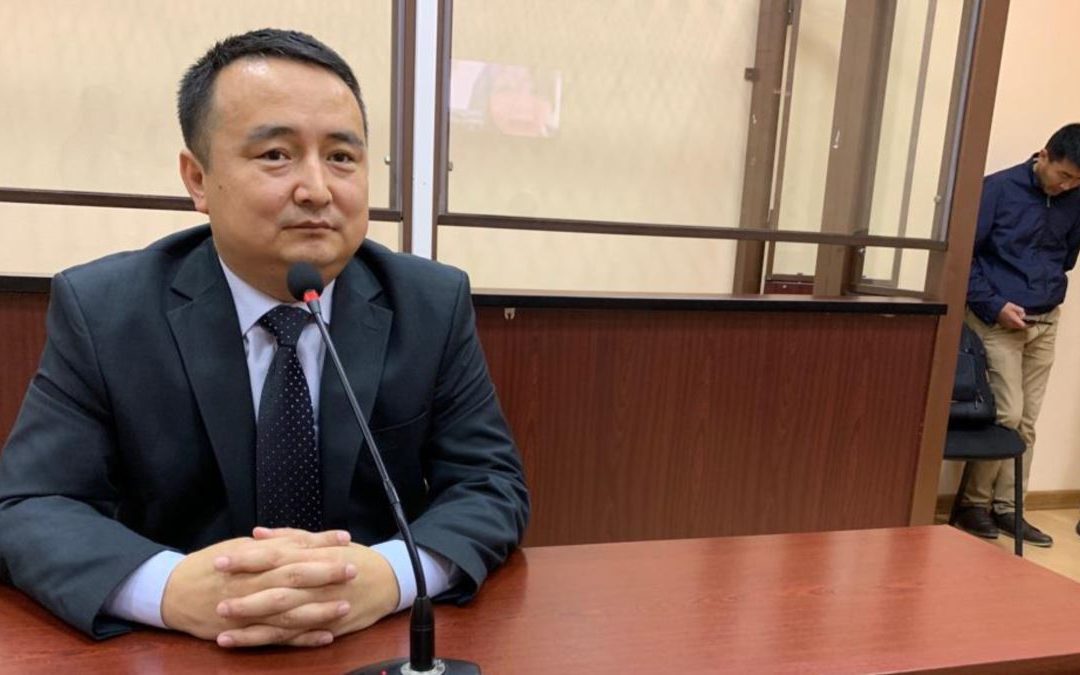Washington, D.C. – The United Nations Working Group on Arbitrary Detention has found the Government of Kazakhstan violated international human rights law by detaining human rights activist Serikzhan Bilash between March and August 2019. Responding to a legal petition filed by Freedom Now, the UN concluded that Kazakhstan “was targeting Mr. Bilash for exercising his rights to freedom of expression and association.”
The Working Group, after examining the facts of the case, determined that Bilash’s arrest was related to his campaign to release ethnic Kazakhs and other minorities from detention in the Chinese province of Xinjiang. This was the first time in its history that the Working Group examined a case involving Article 174 of the Kazakh Criminal Code, which prohibits incitement to social, national, generic, racial, class or religious discord. The Working Group’s evaluation of the law as “overly broad and [lacking] the requisite degree of legal certainty” echoes criticisms voiced by domestic and international human rights organizations.
“The unjust detention of Serikzhan Bilash epitomizes Kazakhstan’s relentless criminalization of peaceful expression,” said Freedom Now Legal Officer Adam Lhedmat. “Rather than heed Serikzhan’s call for international action to end mass human rights abuses in Xiajing, his own government sought to silence him. We call on Kazakhstan to comply with the UN’s decision, expunge the charges against Serikzhan, and ensure he faces no further prosecution.”
In 2017, Bilash founded Ata-Jurt Eriktileri, an organization that campaigns for the release of ethnic Kazakhs held by the Chinese government in the Xinjiang Region and supports the relatives of detainees. Bilash and Ata-Jurt are one of the most comprehensive and reliable first-hand resources for information about the Xinjiang camps.
National Security officers forced their way into Bilash’s hotel room on March 10, 2019, injuring him in the process. They put him on a flight from Almaty to the capital, Nur-Sultan (approximately 1,300 kilometers away), and brought him to the Department of Internal Affairs. Later that day, police raided the Ata-Jurt offices. Government agents seized computers, cameras, and hard-drives with information about individuals detained in Xinjiang. The office was later locked and sealed by law enforcement.
The charges against Bilash are related to comments he made at a February 8, 2019 meeting with members of the Uyghur community. During the course of the meeting, Bilash encouraged individuals to share information about the mass internment in Xinjiang with the world.
In the five months he was held under house arrest, government officials attempted to coerce Bilash into making various written and video-recorded statements. At one point, police asked Bilash to stop raising the issue of ethnic Kazakhs detained in Xinjiang. The officials have also threatened Bilash and his family with physical harm.
Bilash’s trial was initially set to begin on July 29, 2019. After a brief hearing, the court ruled that proceedings must be conducted in Almaty, where the alleged crime took place. The trial resumed on August 16. As hundreds of protesters gathered outside the building to show their support for Bilash, the activist was coerced into signing a plea agreement without his lawyer present. The agreement barred Bilash from leaving Almaty for until November 2019 and banned him from conducting activism for seven years. In its decision, the Working Group called for the plea agreement to be annulled, given the numerous due process violations involved.
As of 2018, experts estimate that Chinese authorities have detained up to 2 million people in internment camps in the Xinjiang Uygur Autonomous Region. Uyghurs, Kazakhs, Kyrgyz, Hui as well as other ethnic Turkic Muslims, Christians and some foreign citizens have been detained in the camps. Allegations of torture inside the camps are rampant. In July 2019, a group of 22 nations sent a letter to the UN, urging China to end its “mass arbitrary detentions and related violations” and calling on Beijing to allow UN experts to access the region.

